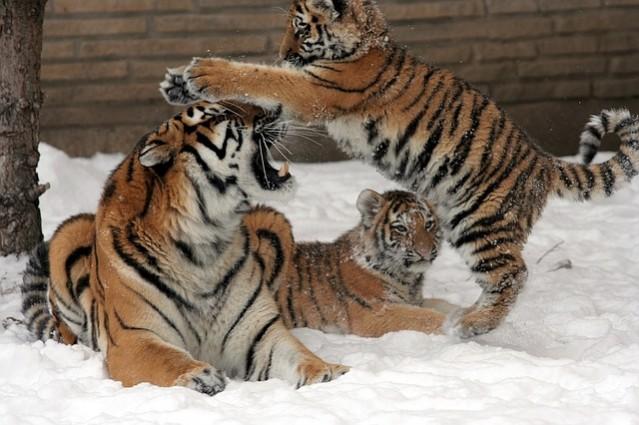
The Chinese government has said it's reversing a long-running ban on scientific and medicinal use of tiger bone and rhinoceros horn.
The government said permission has to be sought before the bones and horns of the endangered animals are used for medicinal purposes. Although it's stated that animal parts may be sourced only from farms, conservationists worldwide decried the move.
"Under special circumstances, trading or using of tiger bone, rhino horn or any products containing them should apply for permission," China's State Council said. according to the South China Morning Post.
The ban has been in existence for 25 years. Conservation groups saw red in the government move and called for a reversal of the decision.
"It is deeply concerning that China has reversed its 25-year-old tiger bone and rhino horn ban, allowing a trade that will have devastating consequences globally", World Wildlife Fund (WWF) said.

The Chinese move "seriously jeopardizes the future survival of wild tigers by stimulating demand for their body parts instead of eradicating demand," said Debbie Banks, Tiger Campaign Leader at the Environmental Investigation Agency. according to National Geographic.
Chinese ban on legal market for tiger bones and rhino horns had come into being after the country joined the Convention on International Trade in Endangered Species (CITES) back in 1993. At that time, the government had said these products shouldn't be used in the medical field and that alternatives should be developed through research.
What's behind the move?
It's not clear why the Chinese government is going back on the conservation pledge. However, conservationists around the world believe that the rising number of tiger farms in China could be the driver behind the decision.
Thousands of tigers are bred in multiple farms around China, while the import of rhinos for farms was allowed recently. Experts note that raising tigers in farms is an incredibly expensive thing - a factor that may have prompted the government to open a legal market for the animal parts.
Many Chinese believe that rhino horns and tiger bones can cure a variety of ailments ranging from gout to cancer and fever to arthritis. But conservationists say all this is a hoax. There has also been this belief that 'tiger bone wine' can give people the strength of a tiger.
Animal welfare groups have long decried the practice of large-scale raising of tigers on farms. The animals, kept in small spaces, attract tourists in their prime, and are then killed for the luxury and medicinal markets.
According to a National Geographic report last year, there are far more captive tigers in China than in the wild. The number of tigers reared in Chinese farms is estimated to be around 8,000, there are only about 4,00 left in the jungles.
Conservationists say the legalisation of medicinal use of tiger bone and rhino horns will help poachers thrive. The legality of trade will be a veneer behind which the traffickers can practice their trade fearlessly, the experts say.
"With wild tiger and rhino populations at such low levels and facing numerous threats, legalised trade in their parts is simply too great a gamble for China to take," WWF's Margaret Kinnaird said.

















